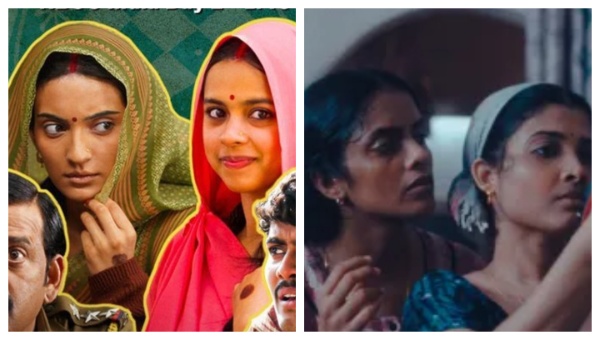India’s Oscar Entry Debate: Laapataa Ladies Vs All We Imagine As Light

It’s rather unfortunate that we would get into a Laapataa Ladies vs All We Imagine As Light debate. Unfortunate because both are such beautiful works, contrasting yet similar in so many ways. The Oscar entry of Kiran Rao’s directorial has hurt the fans of Payal Kapadia’s movie who feel the Film Federation of India’s choice is ‘tragic’. Their anguish is understandable. But we can send only one for the Academy Awards.
Both are different movies in texture and tenor. One intense, the other light-hearted; one immersive, the other expansive; one about exploration of the inner space, the other social issue captured in a broad brush; and one European in aesthetics, the other Indian. They are similar as women are central to both, both touch their subjects with sensitivity and both are helmed by women.
So far so good. But when you have to choose one of the two for an international jury with a keen eye for finer aspects of filmmaking, which would it be? All we imagine…would be a safer bet for sure. It received critical appreciation upon its premier at the Cannes Film Festival this year and won the Cannes Grad Prix beating the works of some of the best in the business. It is well-known already in the global critics’ circles and it has international co-producers to boot. They can create a more positive buzz about the movie in the right circles.
Obviously, global recognition already fetched by the movie was not weighing down the mind of the 13-member jury led by Jahnu Barua when it zeroed in on Laapataa Ladies out of a shortlist of 29 for the Indian entry in the Best Foreign Film category. The Indianness of Laapataa Ladies, Barua told the media, was the clincher. India’s entry at the Academy Awards should authentically represent the Indian society, he added.
One is not convinced that it is a very strong argument. Cinema as a creative enterprise is much more than expressing Indianness before a foreign audience. There are many dimensions to it. Good cinema is supposed to be universal in appeal, transcending boundaries of geography, culture and language. The story can be from anywhere in a diverse country and it may not represent the whole of India, or may even be in conflict with the mainstream India. The way it resonates with the audience is what matters. That should be the benchmark in selection.
However, one must admit that one is a bit biased towards Laapataa Ladies. Not only for the reason that it speaks for women with such subtlety but also for the fact that it touches you with its infectious light-heartedness. No, it’s not a statement or rebellion against patriarchy as being made out to be by some critics. It is a non-accusing look at the quirks and flaws in our society which victimise men too.
It has a lesser chance than All we imagine…to win an Oscar. The jury may fail to grasp the deeply Indian context to the plot. The sense of humour is likely to fall flat on someone unfamiliar with our social practices. The urban theme of All we imagine… and its lonely-at-heart characters would possibly have been easier to make sense of. However, if Laapataa Ladies wins, it would be a big tribute to the art of simple storytelling.
(By Arrangements With Perspective Bytes)
